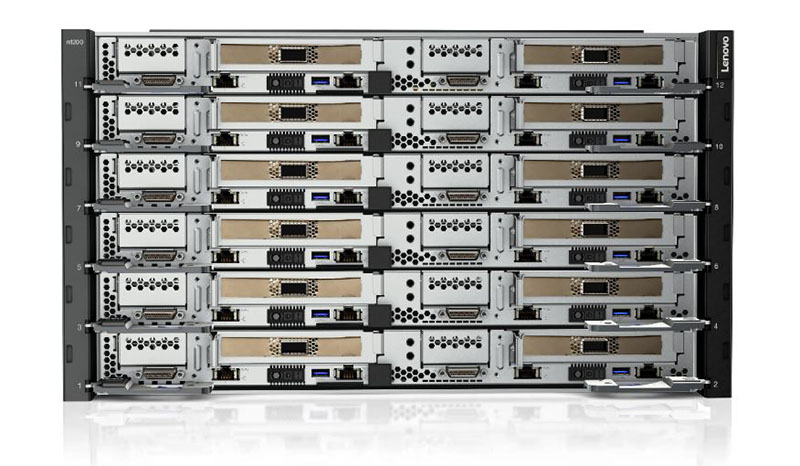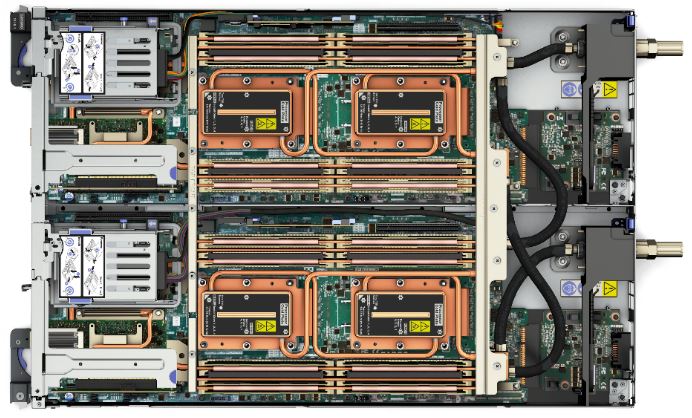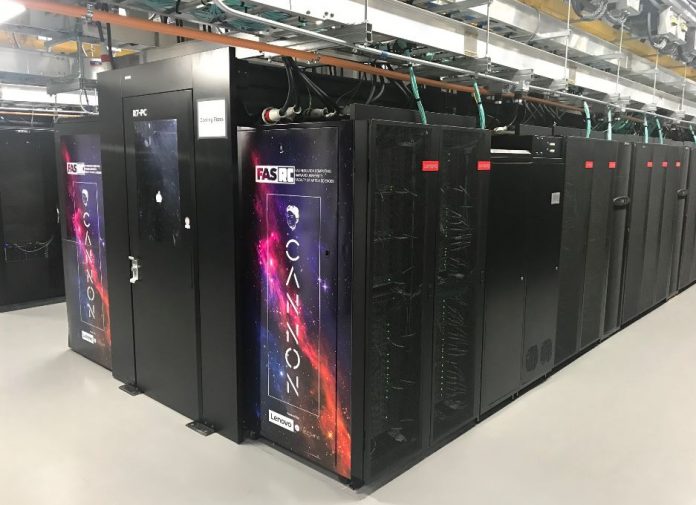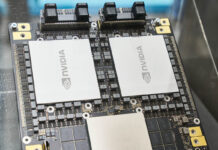For Supercomputing 2019, Lenovo has an announcement of a new system at Harvard. With over 32,000 high-frequency CPU cores the new Cannon cluster is set to focus on scientific simulations around geophysics, medicine, and astrophysics.
Lenovo ThinkSystem SD650 with Neptune Powered Cannon
The Cannon cluster relies upon Lenovo ThinkSystem SD650 servers. We covered the SD650 in our piece Lenovo ThinkSystem SD650 Water Cooled for Dense HPC Applications. These servers are designed for compute density offering up to four CPUs per U of rack space.

At Harvard, the Cannon cluster includes 670 servers. Each utilizes dual Intel Xeon Platinum 8268 CPUs which yields up to 48 cores and 96 threads per node. In aggregate, that means the cluster has over 32160 cores. The ThinkSystem SD650 does more than simply packing servers into close quarters. It also employs novel cooling with direct-to-node water-cooling that Lenovo brands as “Neptune.”

Liquid cooling is set to make a major splash at SC19 as organizations plan for their next-generation systems. For Harvard, this is being touted as their first modern liquid-cooled cluster.
Final Words
It is notable that at 24 cores per CPU and liquid cooling, it squarely falls within the realm of where the Intel Xeon Platinum 9200 is supposed to be a major player. Even with Intel’s HPC chip competing in this space, Lenovo was able to provide enough value to Harvard through its design and services that the Cannon cluster uses LGA3647 Xeon Scalable CPUs.
We like the fact that Harvard is moving into the liquid-cooled form factor in 2019. One can see from the cover image that the system still uses fairly traditional cold aisle containment. Still, this is the first step in getting an organization comfortable with bringing liquid into the data center. For Lenovo, this is a testament to the fact that its value-added design and services are able to maintain an advantage over the pre-built systems from Intel.




